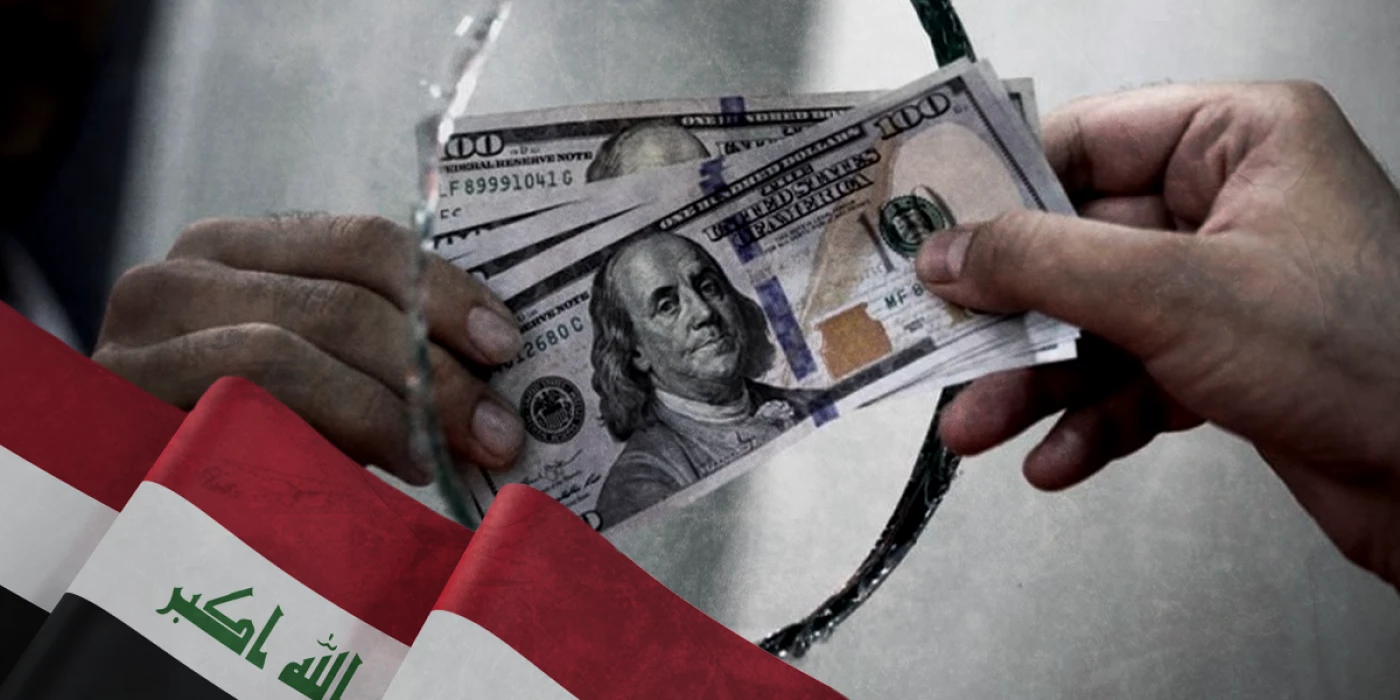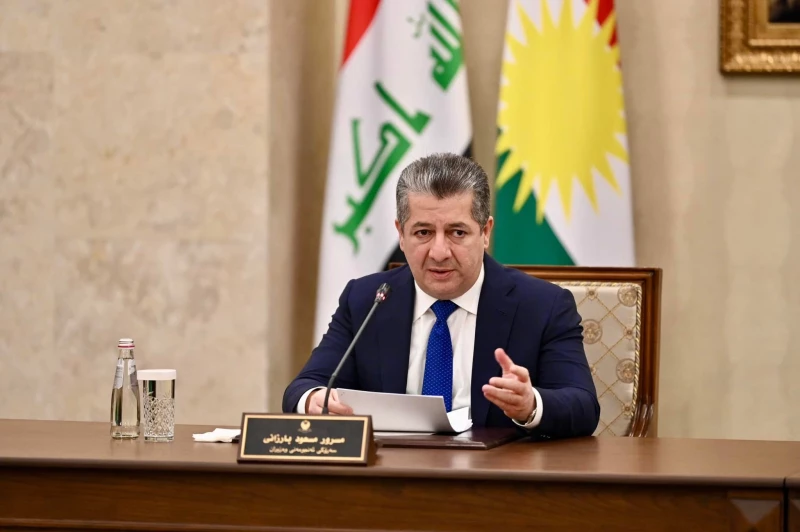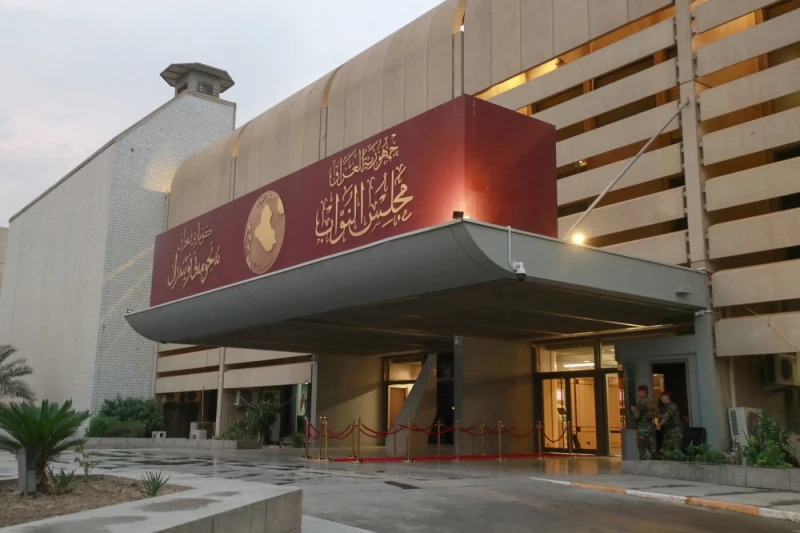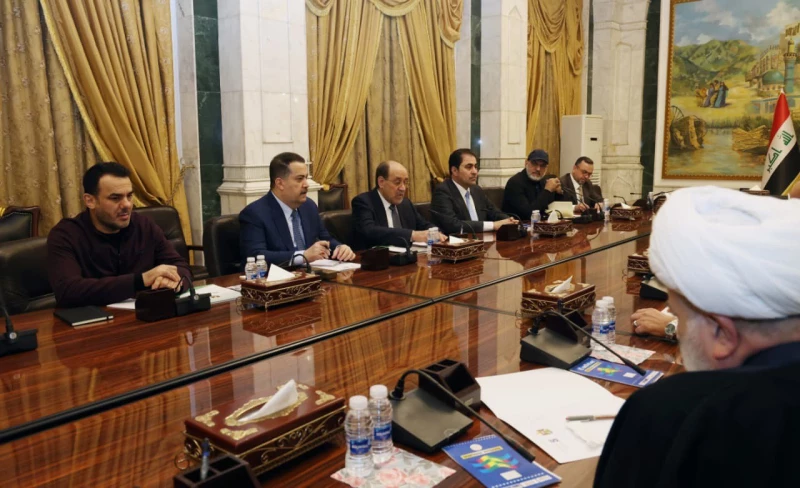The federal government has announced a plan to shut down the dollar sales window at the Central Bank by the end of this year, marking the end of a two-decade-long operation.
The Central Bank of Iraq is now preparing to phase out the dollar auction gradually, aiming for complete elimination by year-end, while keeping the window open solely for auditing purposes.
Prime Minister Mohammed Shia' al-Sudani's recent visit to Washington has bolstered the government's commitment to closing the window and shifting to direct commercial banking transactions.
The joint statement following the Iraqi-American discussions highlighted Baghdad's efforts to reform its financial and banking sectors, with the goal of integrating Iraq into the global economy and boosting trade. Both the Iraqi and American governments expressed their support for the Central Bank of Iraq's plan to terminate the electronic auction platform for international financial transfers by the end of the year.
Expert opinions vary on this decision, raising numerous questions and concerns about the functioning of banks and financial institutions, the measures available to finance foreign trade, and financial transfers. They also questioned whether the government, after closing the window, could prevent dollar leakage and money laundering and how to maintain the stability of the Iraqi dinar exchange rate against foreign currencies.
Technical Advisor to the Prime Minister, Mohammed Saheb Al-Daraji, clarified the government decision in an exclusive interview with The New Region. "The Prime Minister proposed ending the currency auction by the end of this year during his visit to Washington. The American side responded very positively to the Iraqi decision."
He adds, "By the end of the year, the currency auction will cease, and Iraqi banks will need to establish correspondent relationships with foreign banks. A trader wishing to import goods can work with any foreign correspondent bank, just like in other countries.
"With this new procedure, holding currency auctions and platforms will no longer be possible, as traders will transfer funds through banks in countries like Jordan, Kuwait, the UAE, Sweden, and others." He also warns, "Not all banks will be capable of establishing correspondent relationships abroad; only the stronger banks will manage to do so.
"Ending the currency sale window will help maintain the stability of the dollar exchange rate and stabilize prices in the Iraqi market."
Last November, the Central Bank of Iraq stepped back from its role as a "correspondent" and transferred this responsibility to several foreign banks. This shift, according to observers, has led to uncertain outcomes. Economists attribute the surge in the US dollar exchange rate—rising to over 1,500 Iraqi dinars from a stable 1,200 dinars—to this decision.
Dr. Salem Sawadi, Head of the Accounting Department at the College of Administration and Economics, tells The New Region that international trade operations typically involve the opening of documentary credits between the importer, the local bank, and the foreign correspondent bank. These parties facilitate the opening of documentary credits in global trade. "The currency window was established in 2003 to finance foreign trade for the private sector through the Central Bank, support open market operations to control financial liquidity, enhance opportunities for local stability, and maintain the exchange rate of the Iraqi dinar against foreign currencies."
He explains, "The currency window was initially intended to operate for only two years before transitioning to established trade mechanisms. The window remained in use for two decades due to an underdeveloped banking system and the constraints imposed by Chapter VII of the UN resolutions on Iraq, which impeded the establishment of foreign correspondent relationships with local banks."
Dr. Sawadi emphasizes, Iintegrating Iraqi banks into the global banking system will be achieved through correspondent banks, leveraging international trade transactions to control the outflow of foreign currency."
Iraq has traditionally relied on a direct currency sale platform, known as the daily dollar auction, to local banks and companies. This mechanism was designed to maintain the value of the Iraqi dinar and counteract speculative activities in the parallel market. However, observers note that this approach has had several negative side effects, such as money laundering and exchange rate manipulation.
The Central Bank of Iraq maintains that closing the currency window is intended to empower Iraqi banks to forge strong banking relationships with global and regional financial institutions. This move aims to bolster the robustness of Iraq's banking sector and ensure full compliance with international standards and regulations.
Economist Mahmoud Dagher spoke with The New Region. "The closure of the platform means the Central Bank will withdraw from its mediatory role, remaining solely a source for reinforcing dollar supplies to correspondent banks that provide various currencies such as US dollars, pounds, euros, and yuan."
He adds, "In my view, aside from TBI, Iraqi banks will struggle to finance trade with both sanctioned countries and others, due to the ban on foreign banks acting as intermediaries. This constraint will particularly affect banks lacking American correspondents. Traders dealing with sanctioned countries will be compelled to turn to the parallel market for dollars, highlighting a significant downside in Iraq's monetary policy framework."
Dagher emphasizes the importance of "Activating the parallel market to meet the needs of traders importing from sanctioned countries. With the closure of the currency window by the end of this year, issues will arise for countries under sanctioned governments. Therefore, solutions must be implemented to balance supply and demand in the parallel market, as it significantly impacts citizens' ability to obtain their daily necessities."
Economists foresee numerous problems following the Central Bank's withdrawal from its intermediary role and the closure of the currency window, primarily concerning the importation of goods and the resultant price increases.
Dr. Ali Dadoosh explains his worries. "Domestic trade, which depends on imported goods, will encounter significant challenges following the cessation of the currency platform. Bank fees will increase to cover the difference in guarantees imposed, which Iraqi banks provide to correspondent banks. This will be reflected in the rise of the dollar's price against the dinar in the parallel market, which is the actual market."
In his interview with The New Region, Dadoosh says, "There is no coordination between economic policies for the next five years. Fiscal policy, with its substantial expenditures, is expansionary, while monetary policy is contractionary, aiming to absorb liquidity by raising interest rates to 7.5% to counter inflation.
"Iraq's trade policy is ineffective in leveraging its tools, with customs tax rates fluctuating between lowering and raising tariffs on goods and services." In his view, "The solution requires harmonizing economic policies—fiscal, monetary, and trade—to achieve the primary goal of establishing a local production base. This is particularly crucial for essential goods and some durable goods currently imported from neighboring countries and China. Additionally, there should be a focus on developing investments over the next decade."
Another economist, Mazhar Mohammed Saleh, explains, "Financing foreign trade is not within the purview of central banks. These banks are tasked with ensuring monetary stability as issuers of the national currency, monitoring banking activities, and ensuring their stability."
He tells The New Region that "Iraq's rentier conditions and the inflow of foreign cash, primarily from oil export revenues, have made it necessary to finance the private sector's foreign trade through the establishment of the foreign currency auction.
"This auction has served a dual purpose in the Central Bank of Iraq's monetary policy. It controls local liquidity levels (monetary sterilization) through the open market, which involves exchanging dinars for dollars for external transfers related to financing private trade. Additionally, it helps stabilize the Iraqi dinar exchange rate. Foreign banks will receive their foreign currency allocations from the Central Bank of Iraq to facilitate opening letters of credit for private sector foreign trade, while also adhering to international compliance standards, with the support of high-credit-rating international banks."
He affirms that "the efficiency of foreign currency usage will undoubtedly improve after closing the auction, by continuing to control local liquidity levels and stabilizing the Iraqi dinar exchange rate. This will be achieved through new banking practices set to be fully implemented in 2024." While experts warned of the potential disaster that could hit the Iraqi market if the dollar-selling platform is shut down without activating the dealings of Iraqi commercial banks with global banks, others downplayed these warnings.
Abdul Rahman Al-Mashhadani clarified in earlier statements. "The currency auction will not be terminated but will continue under the previous system of balance enhancement. However, Iraqi banks that qualify for foreign transfers must be connected to reputable correspondent banks." He explained, "While the mechanism itself will remain unchanged, the Iraqi bank will now function as the correspondent bank, with its balance being augmented by the central bank."
The economist dismisses concerns about the impact on exchange rates in the market, stating that such rates are not directly influenced by these measures. He notes that fluctuations are primarily driven by trade with sanctioned countries, which are financed through the parallel market. Without addressing this underlying issue, achieving stability in exchange rates remains challenging.
Experts stress the importance of preventing dollar leakage as a critical measure in the upcoming period. To effectively tackle the dollar crisis, the currency should be floated according to supply and demand, enabling citizens to acquire dollars as needed. Presently, the shortage lies in dinars, not dollars, with a daily influx of at least 300 to 400 million dollars.
Closing the currency window will restrict transactions to banks within Iraq and American correspondent banks, which will manage the financing requests of these banks after verifying the required documents. The Central Bank of Iraq will no longer participate in this process.



 Facebook
Facebook
 LinkedIn
LinkedIn
 Telegram
Telegram
 X
X


